Back to Journals » International Journal of Women's Health » Volume 11
Social Determinants of Health in Menopause: An Integrative Review
Authors Namazi M , Sadeghi R , Behboodi Moghadam Z
Received 24 August 2019
Accepted for publication 15 November 2019
Published 9 December 2019 Volume 2019:11 Pages 637—647
DOI https://doi.org/10.2147/IJWH.S228594
Checked for plagiarism Yes
Review by Single anonymous peer review
Peer reviewer comments 2
Editor who approved publication: Dr Everett Magann
Masoumeh Namazi,1 Rasoul Sadeghi,2 Zahra Behboodi Moghadam1
1School of Nursing & Midwifery, Tehranct University of Medical Sciences, Tehran, Iran; 2Department of Demography, Faculty of Social Sciences, University of Tehran, Tehran, Iran
Correspondence: Zahra Behboodi Moghadam
School of Nursing & Midwifery, Tehran University of Medical Sciences, Tehran, Iran
Tel +98 9122494201
Email [email protected]
Abstract: Menopause is one of the most important reproductive health issues of women. Because of rising life expectancy, by the year 2030, the global population of menopausal women is expected to include 1.2 billion people. The purpose of the present study is to provide a comprehensive assessment of existing studies on the relationship between social determinants of health and menopause to attract the attention of researchers and health providers to this critical issue. In present integrative review, articles for menopause published from Jan 1990 to Jan 2019 in databases including MEDLINE, ISI Web of Knowledge, Scopus, Google Scholar, IranDoc, IranMedex, MagIran and SID in English and Persian languages were extracted. After the assessment of the inclusion and exclusion criteria, 40 articles were selected and reviewed. Some social determinants of health are related to the health of women in menopause. Cultural factors, lifestyles (nutrition, exercise, tobacco use, etc.), family support, educational level, employment, economic status, marital status, and the number of pregnancies and childbirth are among the social determinants of health that present research assessed them. The need for education, improving emotional and social support, planning for lifestyle enhancement, and improving socio-economic status is felt, which results in promoting women’s health during menopause.
Keywords: menopause, lifestyle, cultural factor, socioeconomic status
Introduction
According to the World Health Organization, health is defined as a state of complete physical, mental, and social welfare, and not merely the lack of disease or infirmity. Today, global health systems draw their plans based on family and women’s health.1 The aging period of women is associated with a natural occurrence called menopause; its principal characteristic is a disability to fertility and reproduction. Menopause, which means full stop of menstruation due to the lack of estrogen production from ovaries, is considered as a natural occurrence in women’s lives.2 Most women experience menopause at the age of 45 to 54 years old. Still, the average age of menopause is the age of 51. Researches have indicated the same results in Iran. Researchers estimate by the year 2030, 1.2 billion people will be around at the menopausal and postmenopausal age.3 By the year 2022, about 5 million women will be at menopausal age in Iran.2 Because of increasing life expectancy, women are expected to spend on average one third of their life in postmenopausal period.4 Major issues of menopausal age are physical, psychological and sexual problems, including vasomotor symptoms (hot flashes and night sweats), vaginal dryness and dyspareunia, urogenital atrophy, depression, tensions, headache, insomnia, lack of energy, fluid retention, back pain, difficulty in concentration, confusion, and cognitive decline.5,6 The main reason for menopausal symptoms is the reduction of estrogen in the ovaries.7
As stated by World Health Organization, SDH (social determinants of health) defined as “situations in which people are born, nurture, work, live, and the broader set of forces and systems determining the conditions of daily life.” These forces and systems include economic plans and policies, development programs, social standards, social strategies, and political structures.8 Menopause is a complex phenomenon that involves physical, psychological, and social changes in life. On the other hand, the experience of menopause is influenced by cultural norms, social factors, and personal knowledge about menopause.9 Although women experience similar symptoms in menopause due to hormonal changes, but additional factors include age at menopause, education, employment, individual and cultural differences, health status, type of menopause (natural or surgical), stress, environmental conditions and social communications effect on menopausal experiences.10 Thus, the aim of present integrative review is to identify social determinants of health in menopause.
Materials and Methods
An integrative review was conducted using the guide published by the University of York (Center for Reviews and Dissemination, University of York).11 In the present Study; we managed to find social determinants of health in menopause using terms shown in Table 1.
 |
Table 1 Combination of Words Used to Search Articles |
The following databases were searched for relevant literature: MEDLINE, ISI Web of Knowledge, Scopus, Google Scholar, and the Iranian Info Net (IranDoc, IranMedex, MagIran, and SID) from January 1990 to Jan 2019. The following criteria were used to decide which articles to be included:
- Document type: article;
- Language: English and Persian;
- Study design: quantitative and qualitative;
- Existing essential keywords in title or abstract
Articles were excluded if they were not in English or Persian and if the full-text was not available.
Two authors were asked to read the title and abstract of the studies obtained and to read the full texts finally to decide which articles had met the criteria to be included in the present integrative review. The variables of interest were the first author’s name, year, country, study design, and study results. The two authors negotiated any disagreements to achieve agreement.
In order to evaluate articles, the STROBE tool (Strengthening the Reporting of Observation Studies in Epidemiology) and the COREQ tool (Consolidated Criteria for Reporting Qualitative Research) were used.
Overall, 3050 studies were extracted. After removing repeated studies (n=250), the remaining 2800 articles were assessed, and an additional 1050 irrelevant studies were excluded. Of the remaining 1750 papers, 1710 articles were also removed because they were not eligible, and eventually, 40 full-text articles were included in the analysis (Figure 1). Table 2 shows the articles we covered in the present study.
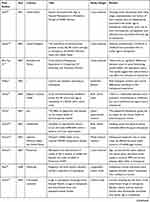 | 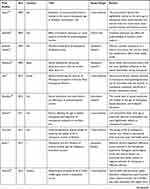 | 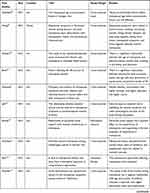 | 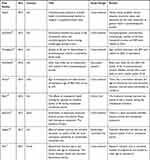 |
Table 2 Studies on Social Determinants of Health in Menopause |
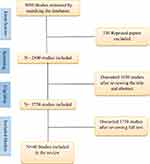 |
Figure 1 Flowchart of study selection progress. |
Results
Cultural Factors
The attitude toward menopause is influenced by the culture and beliefs of the community.12–14 In Western culture, negative words like “fertility failure” or “ovarian failure” are used for menopause, which means that menopause is a condition that requires treatment, not a normal transition period in women’s lives. Western countries that do not necessarily place high importance on fertility often place a high value on youthfulness. Consequently, in these societies, the menopause reflects age progression and loss of youth combined with the loss of sexual attractiveness and can lead to negative attitudes towards menopause. In Arab culture, negative words are used for “menopause,” and this reflects the negative attitude of these communities towards the phenomenon of menopause. Women in Arab culture place a high priority on fertility, and when they experience the inability to fertile as a result of menopause, describe this period as “desperate age.” The severity of menopausal symptoms is related to the attitude toward this phenomenon. Japanese menopause women report the fewest complaints of menopausal symptoms and have the lowest incidence of breast cancer and menopausal complications. Apart from the genetic factor that certainly affects this phenomenon, the role of culture should not be ignored because, in their opinion, it is a positive phenomenon. Turkish women complain more about menopause, according to more than 90% of them, menopause is a negative phenomenon. Most of these women describe this period as “the end of youth, feeling old, losing femininity, hormonal changes, and the cessation of menstruation.” Consequently, this view leads to a negative attitude toward menopause.15
Researchers found that Mayan women are considered to be respected as elderly when they enter menopause, taking care of their children is over. Their brides perform many of their routine tasks. In a culture where aging raises the status of a woman and menopause is considered as a sign of experience, it is natural for women to consider menopause as a time of freedom.16 Chinese women consider menopause as “rebirth,” and, in their view, they can save energy that was previously lost due to fertility and childbirth. Because of this positive attitude to menopause, the lowest amount of drugs are used for treating menopausal symptoms.17 In a study by Hunter et al (2009), Greek women did not consider menopausal symptoms unlikely to receive medical treatment. According to this research, non-European women have a better attitude toward menopause and fewer hot flashes. Also, menopause is not considered as a medical problem in many developing countries, so women pay less attention to symptoms and accept menopause as a normal part of life.16
Research shows that religion has a positive impact on menopause. The prayer, which is a kind of Islam practice, is regarded as a type of meditation. Several studies have examined the role of prayers for the acceptance of life crises such as illness, discussed the abundant and important psychological roles of religion, and argued that religion helps individuals better understand and cope with life events. In this way, Iranian women consider menopause as a natural happening and God’s predetermination. So they can cope with this challenge well regarding their religious beliefs. Also, according to Islam, prayer and sexual intercourse are forbidden during the menstrual period. Consequently, Iranian women consider menopause as a time to relieve menstrual problems, which can pray and have a sexual relationship.18
The culture and attitude of individuals towards menopause can affect the severity of menopausal symptoms, with a negative attitude toward menopause exacerbates symptoms in this period.18–20 Also positive attitude toward menopause improves the quality of life in this period.2
Lifestyle
Studies indicate that there is a relationship between lifestyle (including nutrition and body mass index) and the severity of menopausal symptoms.5 Sociocultural factors can affect people’s lifestyle and nutrition. In Japanese culture, the incidence of menopausal complications and cancers has declined noticeably due to increased consumption of soy and phytoestrogens, which contain isoflavones.13 Due to the high content of phytoestrogens in the Asian diet, the severity of menopausal symptoms is low.15,21 Exercise reduces the severity of menopausal symptoms.15,22–24 According to studies, the prevalence of menopausal depression among athlete women is less than others. Therefore, doing an exercise can play a useful role in decreasing depression.20 Physical activity improves the quality of life by reducing the severity of vasomotor symptoms and enhancing self- imagine.6,25
Studies show that reducing BMI (Body Mass Index) leads to early menopause. According to these studies, women with high BMI are more likely to produce endogenous estradiol and estrogen, which also causes a delay in menopause.26 Although other studies report conflicting results, which show that obesity and decreased physical activity can lead to early menopause.27 Obesity and overweight also reduce the quality of life at menopause, which is due to the increased prevalence of chronic diseases, negative self-imagine, and decreased physical activity in obese women.23,25,28
Smoking can influence the age of menopause, in which smokers experience menopause at an earlier age. Some studies illustrate that smoking is the most important cause of early menopause.27,29–31 Table 3 shows studies on the relationship between menopausal age and lifestyle/norms.
 |
Table 3 Studies on the Relationship Between Menopausal Age and Lifestyle/Norms |
Social Support
Challenges in the life of postmenopausal women make changes in their family demands. So they need more support from their families. If they do not receive support, negative attitudes include loneliness, malaise, and family problems would be developed.18,32 Social support through emotional and informational assistant increases the ability of individuals to cope with stress and reduces psychological and physical symptoms. Studies indicate that social support has reverse and meaningful correlation with the experiences of women in menopause so that by increasing social support from different sources, physical and emotional symptoms decrease.18 Husband is the most important and closest person who can support a woman in this challenge by a correct understanding of his wife’s situation and problems.2,33 According to the studies, emotional support of the spouses can reduce depression and anxiety and improve social relationships in menopause. Educated men are continuously looking for ways to improve their knowledge and performance about menopause, and their wives experience a higher quality of life during menopause. During menopause, men can help their wives by doing exercise with them, emotional support, teaching relaxation techniques, and spending more time with them. Therefore, improving the quality of life of women in menopause more than anything else depends on educating women and their husbands.34
According to research, after implementing an educational program for husbands, the average score of social support perceived by women was higher than before, so that the difference was meaningful. In other words, when the husband has more information about her wife’s mental and physical conditions, he will be able to understand more and support her. Social support has beneficial effects on physical and mental health and prevents depression in women.33
Education
According to research, there is a negative relationship between the level of knowledge and the severity of menopausal symptoms. That is, women with less education experience more severe symptoms, and women with higher education are more aware of menopausal symptoms and strategies to deal with it and are more likely to seek treatment for their symptoms.2,7,10,19,23,24,31 Also, the average age of menopause in educated women is higher than that of uneducated ones.30,35,36 In comparison to others, educated women have better health conditions and lower morbidity. The probable reason is adopting a healthy lifestyle and making informed decisions about reproductive health by them.26 Studies have indicated that educated women have a higher quality of life37 and fewer sexual dysfunctions during menopause. Knowing about menopause can increase orgasm in sexual intercourse, which results in sexual satisfaction.38
Husband’s education also affects the quality of life of postmenopausal women, especially in the psychosocial dimension, which may be due to a better understanding and supporting his wife.23
Employment and Economic Situation
A growing body of research supports the notion that homemakers experience a lower quality of life and higher menopausal symptoms in compare to employed women.19,23 Improving the financial position of women improves the quality of life in menopause, which can be due to increased access to health care services and receiving counseling to manage menopausal symptoms.2,23,24,28,37 Sexual satisfaction is higher in employed women, which is due to increased self-esteem because of financial independence.38
It is believed that lower socio-economic condition leads to early menopause.29,35,36 Also, people who had an unfortunate economic situation in childhood experience earlier age at menopause, which is probably due to an increase in smoking in adulthood.39,40
Marital Status and Number of Pregnancy and Childbirth
Married women have a better general health status than single ones.1,41 According to research, unmarried women experience more severe symptoms in menopause compared to married ones.15,19,42 The probable reason for this is that married women have better social relationships and family supports.23,37 Also, single women experience menopause at an earlier age compared to married and divorced women, which exposes them to complications such as the increased risk of osteoporosis and cardiovascular disease.26,30,35 Research indicate that married women have a higher quality of life at menopause than single women and widows. Post-menopausal women with a higher quality of life are more likely to learn, do exercise and physical activity, and have healthy nutrition and behaviors.25,43 Also, the increase in the age of the last pregnancy causes an increase in the age of menopause. Increasing the number of pregnancies and childbirth also raises the age of menopause, which may be due to increased estrogen and progesterone secretion due to increased uterine and ovarian activity and breastfeeding.29,30,44–46
Conclusion
Regarding the broad impact of social determinants of health on menopause, the need for education and counseling for improving attitudes of women and their husbands toward menopause is felt. Besides, improving emotional and social support, planning for lifestyle enhancement, and improving socio-economic status is needed, which results in promoting women’s health during this period.
Disclosure
The authors report no conflicts of interest in this work.
References
1. Sehati F, Mirghafurvand M, Momeni K. The predictions’ demographic of general health in menopausal women in Langroud city. J Health Breeze. 2015;3(3):29–36.
2. Noroozi E, Miri MR, Gol Mohammadi S. Application of behavioral analysis phase of PRECEDE model for quality of life survey in postmenopausal women in Birjand. J Birjand Univ Med Sci. 2012;19(3):312–323.
3. Ghorbani R, Nassaji M, Shahbazi A, Tabar SB, Rahaei F. Attitudes toward menopause among middle-aged women in Semnan, Iran. J Egypt Public Health Assoc. 2014;89(1):42–45. doi:10.1097/01.EPX.0000443986.36638.73
4. Parvin N, Kazemian A, Alavi A, et al. The effect of supportive group therapy on menopause mental health. J Gorgan Univ Med Sci. 2007;9(3):74–79.
5. Schwarz S, Völzke H, Alte D, et al. Menopause and determinants of quality of life in women at midlife and beyond: the study of health in pomerania (SHIP). Menopause. 2007;14(1):123–134. doi:10.1097/01.gme.0000227860.58097.e9
6. Golmakany A, Shariati Sarcheshmeh M, Marouzi P, Rezaie Sani T. Body Mass Index and its relation to menopausal women’s quality of life. J Holist Nurs Midwifery. 2016;26(1):48–55.
7. Makvandi S, Shushtari SZ, Yazdizadeh H. Frequency and severity of menopausal symptoms and its relationship with demographic factors in pre-and postmenopausal women of Ahvaz, Iran. Iran J Ob Obstetr Gynecol Infertility. 2013;16(49.5):7–15.
8. World Health Organization. Social Determinants of Health in Menopause. Available from: http://www.who.int/social_determinants/en/.
9. Jouybari L, Sanagou A. A phenomenological study of Torkaman menopause women. Iran J Ob Obstetr Gynecol Infertility. 2012;15(35):1–10.
10. Alizadeh M, Sayyah-Melli M, Ebrahimi H, Shishavan MK, Rahmani F. Social determinants and reproductive factors of the menopausal symptoms among women in Tabriz-Iran. Soc Determ Health. 2015;1(1):2–8.
11. University of York. Guideline for Systematic Review Articles. Available from: https://www.york.ac.uk/media/crd/Systematic_Reviews.pdf.
12. Jamshdimanesh H, Jouybari L. Qualitative study: women’s experience of menopause. J Sabzevar Univ Med Sci. 2009;16(4):196–205.
13. Melby MK, Lock M, Kaufert P. Culture and symptom reporting at menopause. Hum Reprod Update. 2005;11(5):495–512. doi:10.1093/humupd/dmi018
14. Fu SY, Anderson D, Courtney M. Cross‐cultural menopausal experience: comparison of Australian and Taiwanese women. Nurs Health Sci. 2003;5(1):77–84. doi:10.1046/j.1442-2018.2003.00139.x
15. Jones EK, Jurgenson JR, Katzenellenbogen JM, Thompson SC. Menopause and the influence of culture: another gap for Indigenous Australian women? BMC Women’s Health. 2012;12(1):43. doi:10.1186/1472-6874-12-43
16. Bahri N, Latifnejad R. Menopause research studies through passage of time: shifting from biomedical to holistic approaches. Iran J Ob Obstetr Gynecol Infertility. 2015;18(154):19–34.
17. Lock M. Menopause in cultural context. Exp Gerontol. 1994;29(3):307–317. doi:10.1016/0531-5565(94)90011-6.
18. Shariat S, Simbar M. Relationship of perceived social support with women’s experiences in menopause. Adv Nurs Midwifery. 2014;25(90).
19. Lee M-S, Kim J-H, Park MS, et al. Factors influencing the severity of menopause symptoms in Korean post-menopausal women. J Korean Med Sci. 2010;25(5):758–765. doi:10.3346/jkms.2010.25.5.758
20. Wang H-L, Booth-LaForce C, Tang S-M, Wu W-R, Chen C-H. Depressive symptoms in Taiwanese women during the peri-and post-menopause years: associations with demographic, health, and psychosocial characteristics. Maturitas. 2013;75(4):355–360. doi:10.1016/j.maturitas.2013.04.021
21. Delavar MA, Hajiahmadi M.Factors affecting the age in normal menopause and frequency of menopausal symptoms in Babol, Northern Iran. Iran Red Crescent Med J. 2011;13(3):1–7.
22. Aparicio V, Borges-Cosic M, Ruiz-Cabello P, et al. Association of objectively measured physical activity and physical fitness with menopause symptoms. The Flamenco Project. Climacteric. 2017;20:1–6. doi:10.1080/13697137.2017.1329289
23. Mirhaghjou SN, Niknami M, Moridi M, Pakseresht S, Kazemnejad E. Quality of life and its determinants in postmenopausal women: a population-based study. Appl Nurs Res. 2016;30:252–256. doi:10.1016/j.apnr.2015.10.004
24. Jalili L, Yazdi H. The relationship between physical activity and severity of menopausal symptoms in postmenopausal women in Ahvaz. Iran J Ob Obstetr Gynecol Infertility. 2014;17(98):15–23.
25. Giannouli P, Zervas I, Armeni E, et al. Determinants of quality of life in Greek middle-age women: a population survey. Maturitas. 2012;71(2):154–161. doi:10.1016/j.maturitas.2011.11.013
26. Ahuja M. Age of menopause and determinants of menopause age: a PAN India survey by IMS. J Midlife Health. 2016;7(3):126–131. doi:10.4103/0976-7800.191012
27. Dratva J, Real FG, Schindler C, et al. Is age at menopause increasing across Europe? Results on age at menopause and determinants from two population-based studies. Menopause. 2009;16(2):385–394. doi:10.1097/gme.0b013e31818aefef
28. Ghorbani R, Nassaji M, Shahbazi A, Rostami B, Taheri M. Association between quality of life, menopausal status, and sociodemographic factors among middle-aged women in Iran. J Egypt Public Health Assoc. 2015;90(4):166–170. doi:10.1097/01.EPX.0000475545.75242.80
29. Abdollahi AA, Qorbani M, Asayesh H, et al. The menopausal age and associated factors in Gorgan, Iran. Med J Islam Repub Iran. 2013;27(2):50.
30. Gold EB, Bromberger J, Crawford S, et al. Factors associated with age at natural menopause in a multiethnic sample of midlife women. Am J Epidemiol. 2001;153(9):865–874. doi:10.1093/aje/153.9.865
31. Schoenaker DA, Jackson CA, Rowlands JV, Mishra GD. Socioeconomic position, lifestyle factors and age at natural menopause: a systematic review and meta-analyses of studies across six continents. Int J Epidemiol. 2014;43(5):1542–1562. doi:10.1093/ije/dyu094
32. Afghari A, Ganji J, Ahmad SM. Psycho-emotional changes in menopause: a qualitative study. J Mazandaran Univ Med Sci. 2012;22(93):27–38.
33. Delshad A, Bahri N. The effect of menopause education on spouses on social support perceived by postmenopausal women in Gonabad city. Payesh. 2009;8(4):343–349.
34. Bahri N, Yoshany N, Morowatisharifabad MA, Noghabi AD, Sajjadi M. The effects of menopausal health training for spouses on women’s quality of life during menopause transitional period. Menopause. 2016;23(2):183–188. doi:10.1097/GME.0000000000000588
35. Ansari H, Rakhshani F, Vahedi M, Mostafapour FK. Evaluation of socio-economic factors related to the natural menopause age in Zahedan, Southeastern Iran. Maturitas. 2009;63:S67. doi:10.1016/S0378-5122(09)70261-0
36. Shobeiri F, Aghababaie S, Masomi Z, Pourhamzed M. The relationship between some socio-economical factors and age at menopause in menopausal women attending to health centers in Hamadan City. Sci J Hamadan Nurs Midwifery Faculty. 2013;21(1):25–35.
37. Barat S, Javadian Kotenaei M, Bouzari Z, Sam S, Taheri Otaghsar M. Factors affecting life process of postmenopausal women. J Babol Univ Med Sci. 2013;15(3):30–35.
38. Sheikhan Z, Pazandeh F, Azar M, Ziaei T, Alavi MH. Survey on sexual satisfaction situation and some of affecting agents in postmenopausal women. ZUMS J. 2010;18(71):81–89.
39. Hardy R, Kuh D. Social and environmental conditions across the life course and age at menopause in a British birth cohort study. BJOG. 2005;112(3):346–354. doi:10.1111/bjo.2005.112.issue-3
40. Lawlor DA, Ebrahim S, Smith GD. The association of socioeconomic position across the life course and age at menopause: the British Women’s Heart and Health Study. BJOG. 2003;110(12):1078–1087. doi:10.1111/bjo.2003.110.issue-12.
41. Shin YJ, Song JY, Kim MJ, Choi JI, Han KD, Lee HN. Relationship between age at last delivery and age at menopause: the Korea National Health and Nutrition Examination Survey. Obstetr Gynecol Sci. 2017;60(4):362–368. doi:10.5468/ogs.2017.60.4.362
42. Dratva J, Zemp E, Staedele P, et al. Variability of reproductive history across the Swiss SAPALDIA cohort–patterns and main determinants. Ann Hum Biol. 2007;34(4):437–453. doi:10.1080/03014460701365821
43. Parsons MA, Obermeyer CM. Women’s midlife health across cultures: DAMES comparative analysis. Menopause. 2007;14(4):760–768. doi:10.1097/gme.0b013e3180415e54
44. Hess R, Olshansky E, Ness R, et al. Pregnancy and birth history influence women’s experience of menopause. Menopause. 2008;15(3):435–441. doi:10.1097/gme.0b013e3181598301
45. Goberna J, Frances L, Pauli A, Barluenga A, Gascon E. Sexual experiences during the climacteric years: what do women think about it? Maturitas. 2009;62(1):47–52. doi:10.1016/j.maturitas.2008.10.007
46. Asghari M, Mirghafourvand M, Mohammad-Alizadeh-Charandabi S, Malakouti J, Nedjat S. Effect of aerobic exercise and nutrition educationon quality of life and early menopause symptoms: a randomized controlled trial. Women Health. 2017;57(2):173–188. doi:10.1080/03630242.2016.1157128
 © 2019 The Author(s). This work is published and licensed by Dove Medical Press Limited. The
full terms of this license are available at https://www.dovepress.com/terms.php
and incorporate the Creative Commons Attribution
- Non Commercial (unported, v3.0) License.
By accessing the work you hereby accept the Terms. Non-commercial uses of the work are permitted
without any further permission from Dove Medical Press Limited, provided the work is properly
attributed. For permission for commercial use of this work, please see paragraphs 4.2 and 5 of our Terms.
© 2019 The Author(s). This work is published and licensed by Dove Medical Press Limited. The
full terms of this license are available at https://www.dovepress.com/terms.php
and incorporate the Creative Commons Attribution
- Non Commercial (unported, v3.0) License.
By accessing the work you hereby accept the Terms. Non-commercial uses of the work are permitted
without any further permission from Dove Medical Press Limited, provided the work is properly
attributed. For permission for commercial use of this work, please see paragraphs 4.2 and 5 of our Terms.
